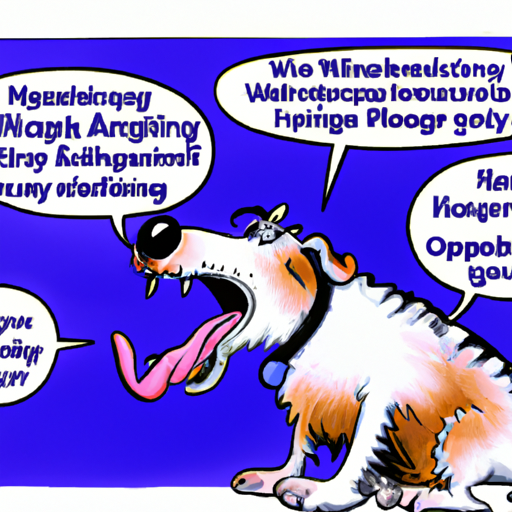You’ve seen it before, the wide, toothy grin of your excited dog interrupted by a sudden, almost comical yawn. But why do dogs yawn when excited? The answer lies in the complex world of canine communication and emotional response.
Table of Contents
1. Understanding Canine Yawning
2. The Science behind the Yawn
3. The Emotional Connection
4. The Role of Yawning in Dog Communication
5. Frequently Asked Questions
Key Takeaways
– Yawning in dogs can be a sign of excitement, stress or social communication.
– It’s important to read the context and other body language signals to accurately interpret a dog’s yawn.
– Dog yawning is a fascinating aspect of canine behavior that is still being studied.
Understanding Canine Yawning
Unlike human yawning, which is primarily associated with tiredness or boredom, yawning in dogs can be a sign of a variety of emotional states, including excitement. You might notice your dog yawns when you get out his leash for a walk, or when he’s playing with his favorite toy. These are situations that create positive excitement and anticipation, triggering your dog to yawn.
Check out this link to learn more about understanding canine body language.
The Science Behind the Yawn
A yawn is essentially a deep breath that cools the brain, helping it to function more efficiently. When a dog is excited, his brain activity increases, creating a need for more oxygen. Yawning helps to meet this demand, allowing the dog to maintain his level of excitement.
This article from the American Kennel Club explains more about the science behind dog yawning.
The Emotional Connection
Beyond the physical requirements, yawning in dogs is also linked to their emotional state. Excitement, stress, and anticipation can all trigger a yawn. This is a form of displacement behavior, where an animal performs an out-of-context behavior to cope with conflicting emotions or situations. If your dog yawns when you’re about to leave the house, it could be a sign of separation anxiety.
You can find more information about displacement behaviors in dogs here.
The Role of Yawning in Dog Communication
Interestingly, yawning also plays a role in dog social communication. Dogs often yawn in response to another dog or human yawning, a phenomenon known as contagious yawning. This mimicry is thought to be a sign of empathy and social bonding between dogs and between dogs and humans. So next time you yawn and your dog follows suit, know that it’s a sign of your deep connection.
This page provides more insights into dog social communication.
Frequently Asked Questions
1. Are there other reasons why a dog might yawn?
Yes, yawning can also be a sign of stress or discomfort. Always read the context and watch for other body language signals.
2. Can yawning be a sign of health issues in dogs?
Excessive yawning could be a sign of health problems, such as heart disease or central nervous system disorders. If your dog is yawning a lot, it’s best to consult a vet.
3. Is there a difference between a normal yawn and an ‘excitement’ yawn?
Not necessarily. The context is what gives meaning to the yawn. An excitement yawn might be accompanied by other signs of excitement like wagging tail, perky ears, and bright eyes.
Understanding why dogs yawn when excited is just one aspect of the fascinating world of canine behavior. By paying attention to these behaviors, you can learn a lot about your dog’s emotional state, improving your bond and communication.



